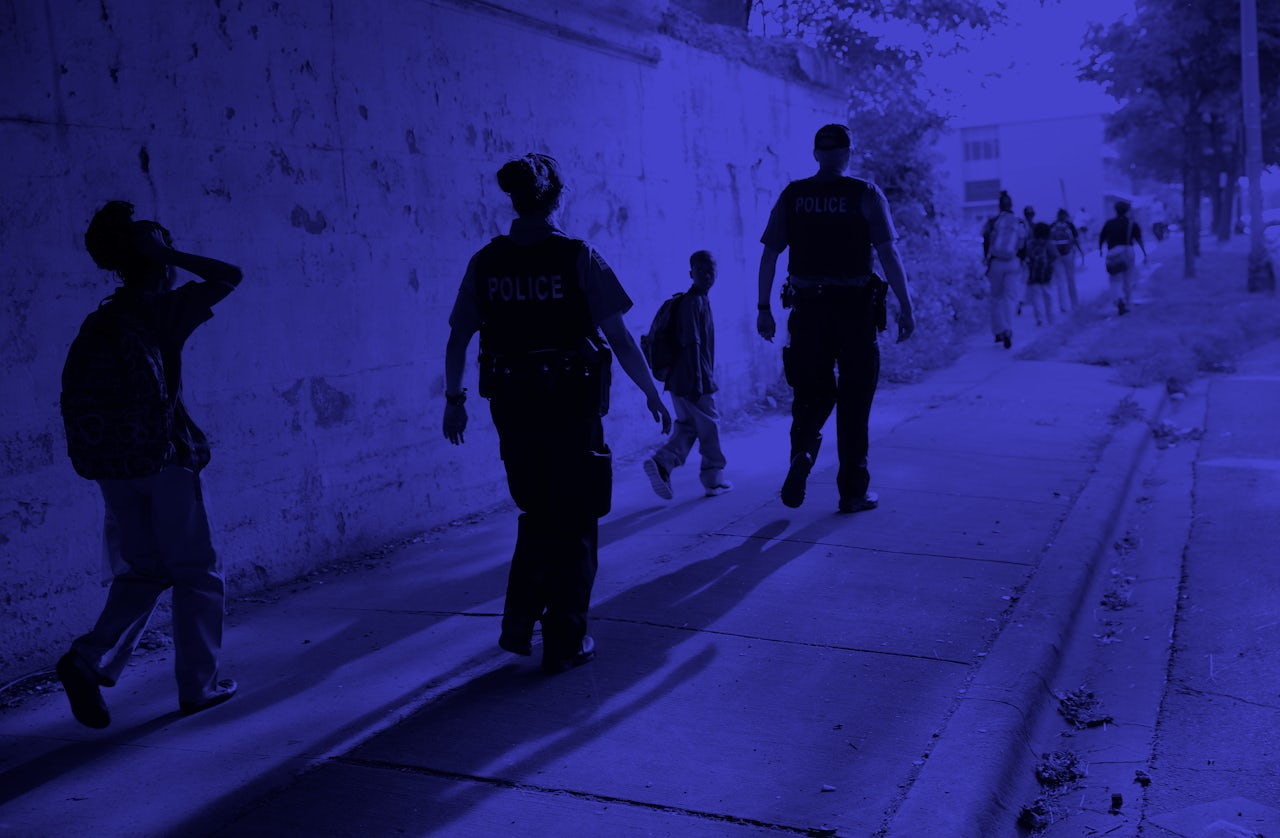The cover story for the latest issue of the Chicago Reader outlines the challenges police in the city face when they are assigned to work in public schools. There are currently around 240 officers stationed in 500 public schools across Chicago. The story charts the history of police being introduced to academic environments and how, in Chicago, politics have infected integral policies that affect the city's young people.
Some key takeaways:
- While police do receive regular training, it is unclear whether or not any of that training deals specifically with dealing with minors.
- Complaints against officer conduct were vetted by investigators who “routinely take the word of officers over hard evidence that contradicts their stories”.
- In 2007, CPD officer John Fitzgerald shot and killed 18-year-old Aaron Harrison, claiming the teen had a gun. The department ruled the shooting justified, but when a civil case against Fitzgerald went to trial, four witnesses contradicted his testimony. As of April 2016, the officer still worked in a car that “attends several schools.”
- Principals, deans, and other school leaders said they never received any guidance from the school district or CPD “about what officers' intended role was, let alone about how to handle any concerns they might have.”
- Principals and deans also have no say over which officers are assigned to their schools.
- The systems for reporting incidents also allow for conflicting reports from conflicting interests to muddy investigations.
Correction: This article has been updated to more accurately reflect Chicago Reader’s reporting.
